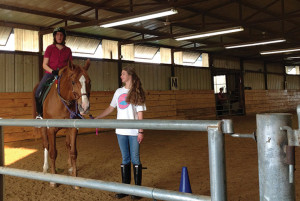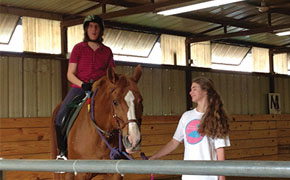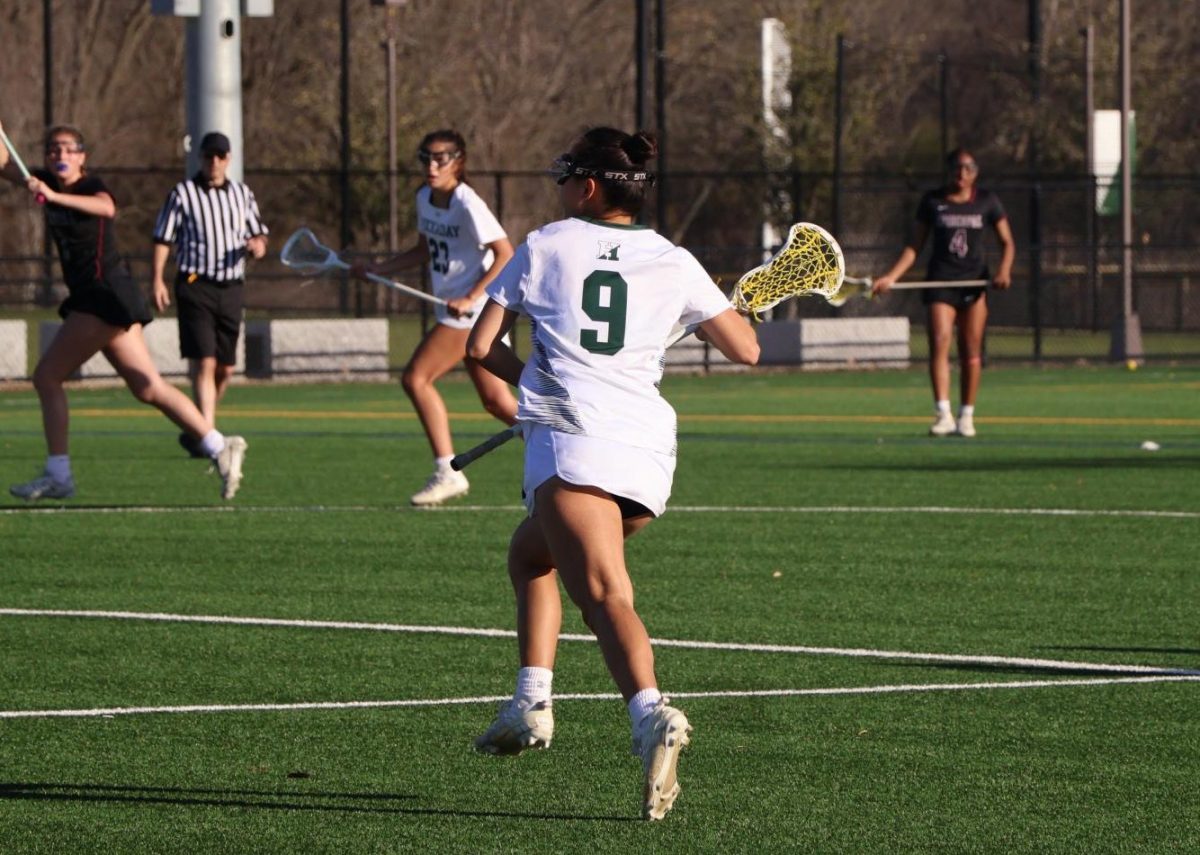Sophomore Raney Sachs devotes her free time to volunteering at Equest Therapeutic Horsemanship

We all find a way to get a break from school sometimes. Some girls catch up on Netflix. Others go for a run. Sophomore Raney Sachs, however, spends her free time as a volunteer at Equest Therapeutic Horsemanship.
Sachs had been riding horses for 11 years when she learned about Equest Therapeutic Horsemanship from her riding instructor three years ago. Equest offers equine-assisted therapy and rehabilitation for children and adults with physical, cognitive, emotional and learning disabilities. Sachs now travels to Equest once a week to work with an assigned rider and horse. Sachs believes that her experience as a volunteer at Equest has helped her gain a perspective on life—including school—she didn’t have before.
“The riders are focusing on obstacles that are significantly more imposing than my pre-calculus homework,” Sachs said. “[It’s] so inspiring, and [it] makes all of my own obstacles feel a lot smaller and inconsequential.”
With each therapy session, Sachs notices the riders “progressively improve.” At Equest, the riders develop physically, in areas such as in muscle tone and motor coordination skills, and psychologically. The self-confidence and “positive attitude” that the riders acquire improve their familial and social interactions as well.
“They are struggling with and overcoming issues like being able to stand upright, keep their balance and communicate their feelings,” Sachs said. “[Those are] abilities that we often take for granted.”
Sachs worked with one rider, Leah Battalora, for a year from 2012 to 2013. Battalora, 18, is autistic.
Battalora’s mother, Carol Battalora, believes working with Sachs was a “positive and fun experience” for her daughter. “It was awesome for [Leah] to work with a peer who was patient and calm,” Carol Battalora said. “[Sachs] allowed [Leah] to care for and handle her horse, and [she] listened to Leah’s many stories about Katy Perry and current events in her life.”
Sachs no longer works with Battalora; however, Sachs still sees her at Equest on a regular basis.
Sachs describes the staff members as patient and kind with both the riders and the volunteers. “The staff and instructors are amazing,” Sachs said. “They have an incredibly hard job, but they do it really well.”
Equest Director of Volunteer and Intern Services Ellie Grant believes that the volunteers like Sachs get as much or more out of Equest than they put in.
“There’s something so special about being a part of that team,” Grant said. “As a volunteer, you are able to work with both the horse and the rider and to bring changes into the rider’s life. Knowing that you made a difference in a life, there’s nothing more rewarding.”
Sachs and Battalora are examples of the relationships that the riders and the volunteers develop at Equest.
“Being a part of that struggle and watching the riders rise above all of the challenges life has thrown at them is a really incredible experience that I am so grateful for,” Sachs said.
Equest caters to riders with over 24 disabilities and learning differences, like ADD/ADHD, Autism Spectrum and Cerebral Palsy.
Founded in 1981, the 48—acre Equest campus in Wylie, Texas, provides indoor and outdoor riding arenas, horse stalls, housing and specialized treatment facilities. Its staff of certified instructors, physical therapists and occupational therapists provide services to more than 150 individuals in over 447 sessions annually.
Equest’s mission is to “empower, enrich and educate through horses.”
“[Equest] is such a different environment from everything else in my life,” Sachs said. “I’m really lucky I get to be exposed to it.”
– Faith Isbell



